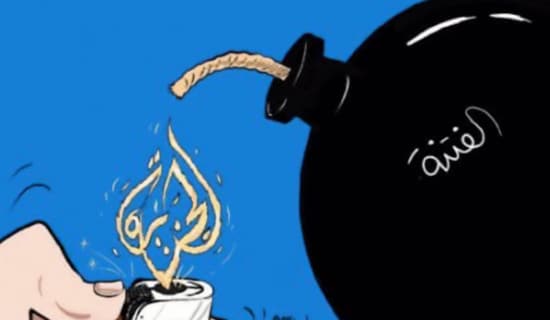The Russian media outlet Komsomolskaya Pravda teamed up with Igor Korotchenko the editor-in-chief of the magazine National Defense, to answer the main questions arising from the suspension of the INF Treaty, and explain Russia's point of view on the issue.[1]
Below are excerpts from the article:[2]

USSR President Mikhail Gorbachev and US President Ronald Reagan sign the INF Treaty at the White House, in 1987. (Source: Ronald Reagan Presidential Library)

Igor Korotchenko (Source: Kp.ru)
1. "Why were medium-range and shorter-range missiles banned, while intercontinental [missiles] (range over 5,500 km) were not?"
"It's all about the rocket's flight time to the target. In case of intercontinental it is about 30 minutes. This is time [enough] for the attacked country's military- leadership, which was attacked, can assess the situation, hold emergency consultations and launch a counter strike. In the case of medium and shorter range missiles, the count is a matter of minutes.
"'If the Americans deploy such missiles, for example, in Estonia, then a strike on St. Petersburg can be delivered in 3 minutes, and on Moscow in 7 minutes,' Korotchenko comments."
2. "Why did America blame Russia for violating the INF Treaty. What is wrong with the Russian 9M729 rocket?"
"The dispute was about the maximum range of the missile. Americans say that it can fly further than 500 km, that is, it violates the terms of the treaty. Russia claims that the maximum flight range is 480 km.
"'The US’s allegations are unsubstantiated, and Russia has provided evidence that it did not violate the INF Treaty.' Korotchenko says. 'America wants to force the liquidation of 9M729 rockets on our country, firstly, because they are very effective, these are cruise missiles that can go at extremely low altitude. And secondly, at one time they were able to impose the destruction of the 'Oka' missile system on the USSR, though it 'the 'Oka'] rockets did not violate the terms of the treaty. Now they want to pull of this trick a second time'."
3. "The INF Treaty was concluded between the USSR (Russia) and the USA. But what about other countries that now have ballistic missiles?"
"Indeed, Washington has repeatedly stated that the treaty on the prohibition of missiles with a quick approach time should extend to other countries, first and foremost to China. The Chairman of the State Duma Committee on Defense, General Vladimir Shamanov, also expressed the opinion that the new INF Treaty, if concluded, would be multilateral and would cover China, India, the DPRK, Iran and Pakistan.
"'The main goal of the United States, upon withdrawal from the INF Treaty, is the ability to place its ballistic missiles in Europe in order to constantly keep Russia in the crosshairs within the framework of the concept of the global first strike,' the editor-in-chief of the National Defense magazine believes. 'All references to China and India are bullshit, and we should not be worried. There is a Russian-American treaty that the American side refused to fulfill. As for the possibility of a missile strike on Russia by China, at this moment it is insignificant. In addition, the strategic nuclear forces of our country can be used against any country that encroaches on our security'."
4. "German politicians said that the INF Treaty could be saved if Russia removes the 9M729 type missiles behind the Ural Mountains. Is this really the way out?"
"In this case, Russian missiles can only be aimed at China and Japan. And the United States does not hide its plans to deploy medium and shorter-range missiles in Europe. Russia needs a 'mirror response.'
"We will not portray the fool, pretend that we do not understand why America is leaving the INF Treaty,' Korotchenko believes. 'Russia will deploy its missiles, which are not subject to restrictions, where it sees fit to do so to ensure its safety'."
5. "Where will America will be able to deploy its medium and shorter range missiles aimed at Russia?"
"The short answer is: in any NATO country.
"'Most likely - in Estonia, Latvia, Lithuania and Poland,' the military expert believes. 'And in the future - in Ukraine as well. And for this it is not even necessary to accept this country in NATO, the United States can do it within the framework of separate [bilateral] agreements. Moreover, Europe can now object to this placement as much as they what. Practice shows that, sooner or later, the United States squeezes the Europeans, and they obediently go in the right direction. We must proceed from the worst possible scenario."
6. "Will the new arms race undermine the Russian economy?"
"Vladimir Putin has already stated that the answer to the American demarche will be executed within the framework of the existing defense budget.
"'Russia will only have to adapt pre-existing weapon systems. Naval 'Caliber' cruise missiles, which did not fall under the terms of the INF Treaty, will get a ground based variant. Road mobile launchers will be created - the cost of this is minimal. Otherwise, the missiles are already mass-produced, all automation has been worked out. For Russia, there will be no arms race,' Korotchenko says."
7. "Other treaties relating to nuclear weapons, will now also be canceled?"
"The main existing Russian-American treaty on the limitation of strategic offensive arms is called New START III (SNV-III). According to it, each of the two countries can have no more than 1,550 deployed nuclear warheads and no more than 700 deployed carriers of ballistic missiles (and no more than 100 non-deployed carriers). The treaty expires on February 5, 2021. Its prolongation is open to question.
"'Most likely, the United States will withdraw from New START III. Such a probability is now estimated at 75-80%' Korotchenko suggests. 'After withdrawing from this treaty, America will be able to dramatically increase the number of its nuclear warheads. Equally important, Russia will not be able to verify US offensive nuclear weapons. Now New START III incorporates reciprocal checks and control over treaty fulfillment"
8. "Is the vaunted US NMD (National missile defense) effective against Russian cruise and hypersonic missiles?"
"'Their missile defense system cannot even intercept our retaliatory strike with conventional ballistic missiles, and if there would be hypersonic paragliding ones, then all the more so,' Korotchenko replies. 'The main difference between the 'hypersonic' is that the movement of the rocket to the target occurs along an unpredictable trajectory. In the case of an intercontinental ballistic missile you can calculate the point and time interval by means of radar for the anti-missile rocket. In the case of a hypersonic warhead, it is impossible to calculate the meeting point at the current level of scientific development. And it will be impossible for at least 50 years'."
[1] See MEMRI Special Dispatch No. 7873, Russian Expert Rogov On The Suspension Of The INF Treaty: We Can Inflict An Intolerable Blow On The Americans, February 4, 2019.
[2] Kp.ru, February 4, 2019.




